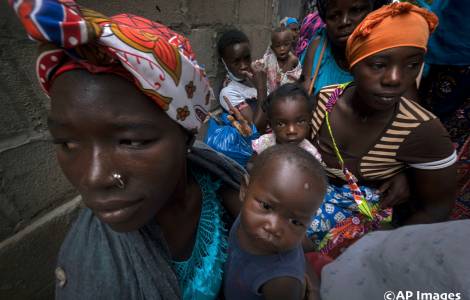
Maputo (Agenzia Fides) - After the attack on the city of Palma on March 24 (see Fides 27/4/2021), the already grave humanitarian situation in the province of Cabo Delgado in northern Mozambique has worsened. Before the attack on Palma, more than 696,200 people were already displaced from northern Mozambique.
According to the International Organization for Migration (IOM), this corresponds to an increase of around 28,000 displaced persons since the end of 2020.
Almost 900,000 people are expected to face a severe food crisis in the area between Cabo Delgado, Niassa and Nampula before the April-September harvest, according to the humanitarian organization. The ongoing conflict that is causing the constant displacement of residents has adversely affected agricultural activities, paralyzing markets and fishing activities. In addition, crops in the coastal region and in the provinces of Cabo Delgado and Nampula are expected to be below average due to irregular rainfall, abnormally high temperatures and damage from pests. Meanwhile, internally displaced persons are temporarily housed by the government at the sports facilities in the city of Pemba, which can accommodate up to 400 people. With the arrival of several refugee boats last weekend, the number of people living at the facility rose to 213, including the elderly, people with disabilities and pregnant women. The country's Catholic Church is also trying to give concrete help to displaced people. The Archdiocese of Nampula has launched a project to build 200 homes for thousands of displaced people who are currently being housed in tents by the Archdiocese. The 200 families with a total of around 3,170 people fled the attack on Palma on March 24th. The city has since been officially taken over by government troops. Local sources, however, report further attacks in the city and there are even fears that the next target of the jihadists may be the city of Pemba. Jihadists have also been controlling the port city of Mocímboa da Praia since last August. (L.M.) (Agenzia Fides, 10/5/2021)
 AFRICA - “Collateral” effects: how African wars sabotage access to education for the new generations
AFRICA - “Collateral” effects: how African wars sabotage access to education for the new generations